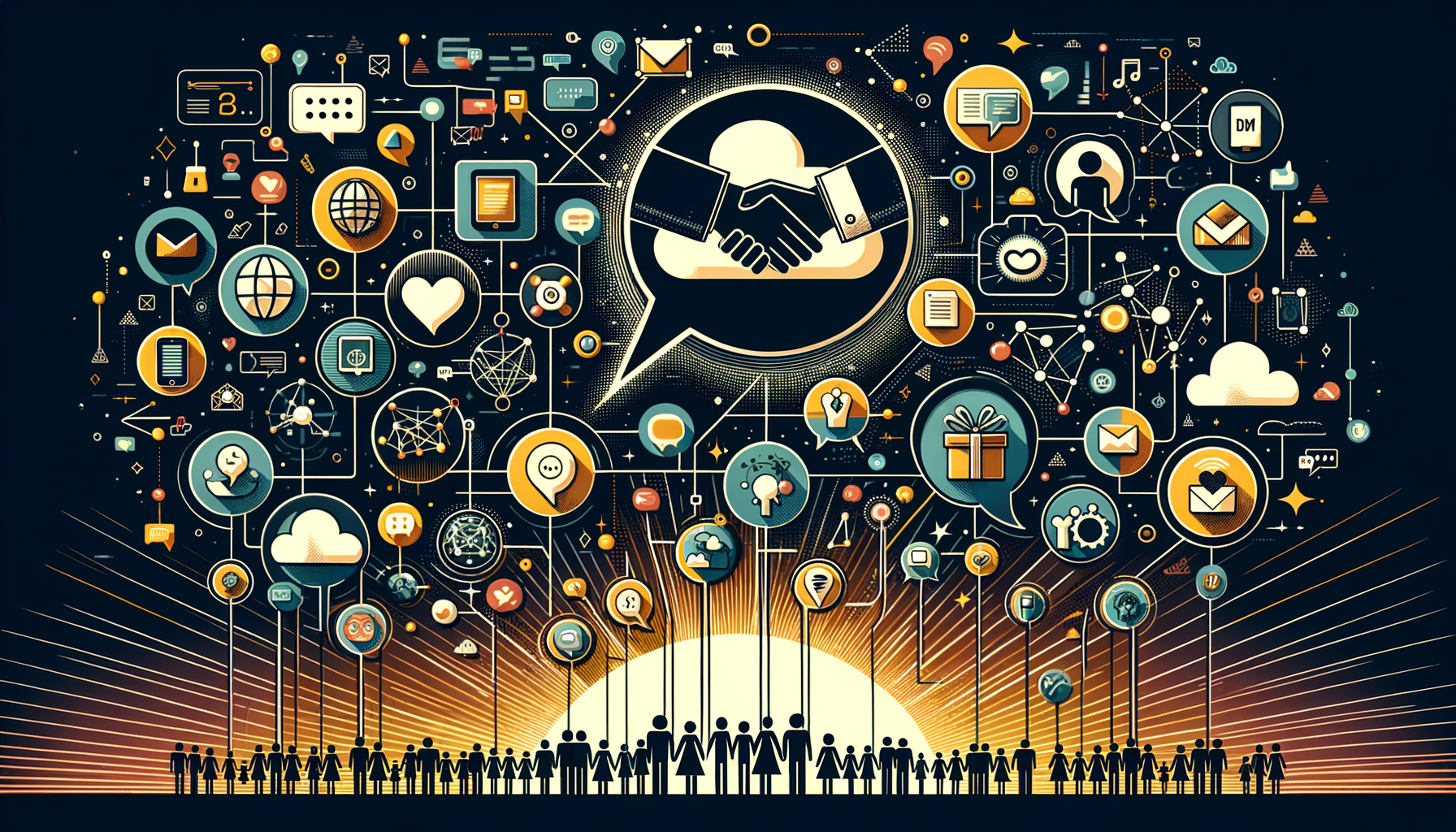“Mastering Networking through Direct Messages: A Comprehensive Guide”

In an era where digital platforms dominate the networking world, we have seen the skyrocketing importance of direct messages as a powerful tool. It may sound odd to some, but the direct messaging feature on platforms like Instagram, Twitter, LinkedIn, and many others has taken networking to a whole new level. It’s all about connecting, conversing, and ultimately creating a strong network that holds mutual benefits for everyone involved.
Understanding the Power of the ‘DM’
Let’s start things off by getting a handle on what direct messages, often referred to as ‘DMs’, truly mean in the ever-growing landscape of digital media. In simple terms, these are private conversations that you can have with other users on social media platforms. They offer a level of intimacy and personal touch that’s a departure from the usually public social media activities.
Direct messages have been around for a while, but their potential for business networking has been recently recognized and utilized. By nature, they allow for private, direct communication with a potential business contact, customer, or influencer. This can be seen as a more humane, personal approach to networking that ignores the barriers of geography or professional hierarchy.
Direct Messages as Part of Your Digital Strategy
For many businesses and marketers, DMs are more than just a tool for casual conversations. They are a strategic asset that can be leveraged in a variety of scenarios. Whether it’s about reaching out to influencers, engaging with customers, or communicating with potential business partners, direct messages offer a seamless and efficient way to do so.
Social media has become a sort of democracy, with every individual getting a chance to contact and converse with people they may never meet in person. As businesses strive to be more ‘human’ in their approach, DMs provide that opportunity to connect on a personal and emotional level. The focus should be on building strong relationships rather than outright pushing your products or services.
Best Strategies for Direct Messaging
Having said that, using DMs effectively for networking requires a correct approach and the right set of strategies. It’s a game of knowing what to say, how to say it, and when to say it.
Approaching the Conversation: First impressions are essential in this context. Be approachable, friendly and professional in your interaction. Start with an introduction, mention any mutual connections or shared interest, and express how you are genuinely interested in what the other person does.
Personalized Messages: Avoiding template messages is crucial as they often feel impersonal and make people apprehensive. Invest time in creating personalized messages that resonate with the recipient’s interests, background, or work.
Adding Value: It’s essential to ensure that your DMs add some sort of value and aren’t just about asking for something in return. Offer something valuable first to establish a mutually beneficial relationship.
Timely Follow-ups: Following up is just as important as initiating a conversation. A polite follow-up message can show that you respect their time and value the interaction.
Overall, networking via DMs is about balance. It’s about being formal while also personable, being respectful but also assertive, being professional but also emotive.
How to Use DMs Across Various Platforms
While the underlying principles remain the same, the approach to direct messaging can vary based on the platform you’re using.
Twitter, for instance, is an excellent platform for initiating conversations due to its informal nature. It allows for casual conversation with influential persons that might be inaccessible otherwise.
Instagram, on the other hand, prioritizes visual content, and DM’s often extend from public content (stories or posts) to private conversations. Engaging with posts publicly and then moving the conversation to DMs is a common practice on Instagram.
LinkedIn, the professional networking platform, requires a more professional and formal approach. Comprehensive introductions, precise requests, and industry-specific discussions are the norms here. LinkedIn DMs are often about professional development, job opportunities, or connecting with thought leaders.
The Emergence of Group DMs
A fascinating aspect of DMs is the idea of group direct messages. These are essentially private chat groups consisting of selected individuals. They provide a platform for engaging several users at once, allowing for more extensive and multi-layered discussions.
Group DMs can be an asset for businesses looking to engage with specific target groups, build communities around their brand, or even support and feedback groups. Riding on the power of the community, these groups promote organic connections and create a more human experience.
Direct Messages and Network Expansion
In the grand canvas of digital marketing, direct messages pay a vital role in network expansion. In fact, DMs can be the beginning of a potential business partnership, a fruitful collaboration, or a loyal customer relationship.
They allow you to connect and influence on a micro-level, which can, in turn, generate macro-level benefits. DM networking is a way of establishing a personal relationship with individuals who can potentially propel your business or career forward.
Final Thoughts
In conclusion, direct messages have revolutionized business networking in today’s digital world. They have made networking more personal, accessible, and result-driven. It allows anyone from anywhere to connect, engage, and build relationships with global influencers, customers, or like-minded individuals.
Remember, effective networking through DMs requires an understanding of the platform, a well-crafted message, and a professional yet personal approach. Treat it as a tool for creating meaningful relationships, which ultimately adds value to your business in the long run. In today’s digital-driven world where personal connection often takes a backseat, DMs can indeed be that driving force behind relationships that are valuable and rewarding.

Recent Comments